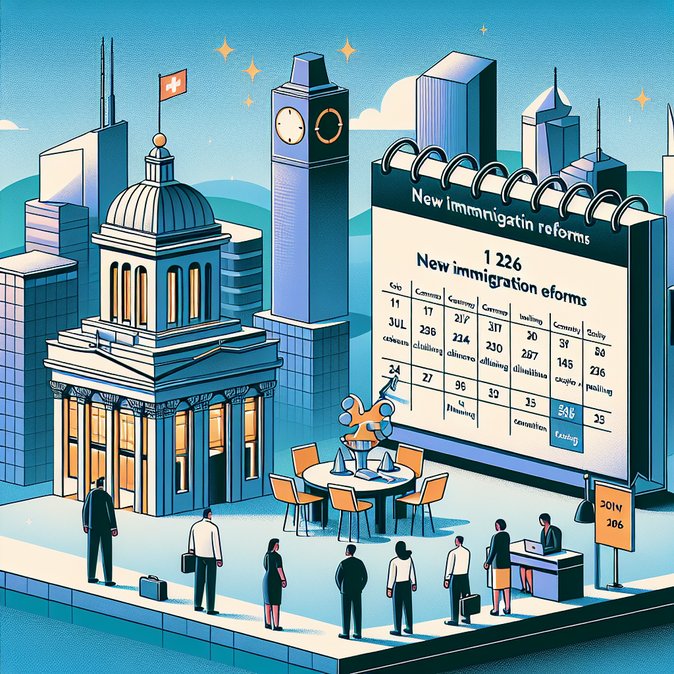
In an overnight session that ended at dawn on 24 November 2025, Switzerland’s National Council and Council of States adopted the most substantial rewrite of the Federal Act on Foreign Nationals and Integration (FNIA) since 2014. At the heart of the reform is a decisive shift away from the current, demand-driven quota model—where the Federal Council tweaks numbers by ordinance—to a system of fixed, Parliament-voted ceilings that cover all categories of permits issued to third-country nationals. Each autumn, lawmakers will now decide on a single global envelope for B-residence permits, L-short-term permits, intra-company transfers, trainees and certain family members.
Supporters argue that hard ceilings will give cantons, employers and housing markets clearer visibility earlier in the year, easing pressure on public services after net migration hit a 17-year high in 2025. The centre-right majority also believes that putting the politically sensitive quota decision in parliamentary hands will improve democratic legitimacy and defuse populist calls for a new “mass-immigration” referendum.
![Swiss Parliament Approves Annual Work-Permit Ceilings in Sweeping Immigration Overhaul]()
Beyond quotas, the bill compresses the asylum timeline: initial decisions must now be issued within 90 days instead of 140, and appeal windows are shortened. Justice Minister Élisabeth Baume-Schneider says the tighter deadlines could shave CHF 120 million a year off federal accommodation costs, but NGOs warn of due-process risks if applicants cannot gather evidence quickly enough.
For corporate mobility teams the clock is already ticking. Most provisions enter into force on 1 July 2026, leaving just seven months to adapt applicant-tracking systems, template contracts and assignment budgets. Multinationals that rely on short-notice project assignments—especially in Zürich’s tech corridor and Basel’s life-sciences cluster—will need to reserve quota blocks early or explore intra-company transfer exemptions.
Cantonal migration offices are rushing to draft implementation ordinances. Several, including Zug and Vaud, have hinted at first-come-first-served mechanisms for allocating their slice of the national envelope—raising the stakes for HR teams accustomed to rolling applications throughout the year.
Supporters argue that hard ceilings will give cantons, employers and housing markets clearer visibility earlier in the year, easing pressure on public services after net migration hit a 17-year high in 2025. The centre-right majority also believes that putting the politically sensitive quota decision in parliamentary hands will improve democratic legitimacy and defuse populist calls for a new “mass-immigration” referendum.

Beyond quotas, the bill compresses the asylum timeline: initial decisions must now be issued within 90 days instead of 140, and appeal windows are shortened. Justice Minister Élisabeth Baume-Schneider says the tighter deadlines could shave CHF 120 million a year off federal accommodation costs, but NGOs warn of due-process risks if applicants cannot gather evidence quickly enough.
For corporate mobility teams the clock is already ticking. Most provisions enter into force on 1 July 2026, leaving just seven months to adapt applicant-tracking systems, template contracts and assignment budgets. Multinationals that rely on short-notice project assignments—especially in Zürich’s tech corridor and Basel’s life-sciences cluster—will need to reserve quota blocks early or explore intra-company transfer exemptions.
Cantonal migration offices are rushing to draft implementation ordinances. Several, including Zug and Vaud, have hinted at first-come-first-served mechanisms for allocating their slice of the national envelope—raising the stakes for HR teams accustomed to rolling applications throughout the year.









